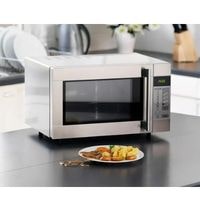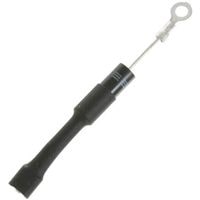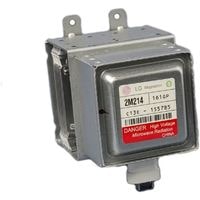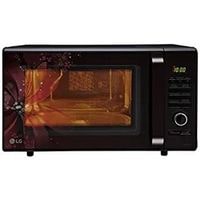LG Microwave Not Heating. Microwave ovens, of which there are many brands, are some of the most commonly used appliances today. Regardless of one’s location and setting, people tend to own at least one microwave.
Microwaves have been specifically engineered for cooking and heating in larger quantities as well as for other purposes that include thawing frozen food and even preparation of certain delicious desserts.
Although microwaves provide a lot of help with different aspects in our kitchen whether it’s cooking or heating or maybe even both, they may start showing certain types of negligence over time.
If your microwave stops heating properly then we’ve gathered plenty of useful information on the most likely causes so you can start getting things going again and what exactly you need to do to remedy the situation.
LG Microwave Not Heating

LG Microwave not heating. If the diode burns out, the magnetron won’t receive enough voltage to operate, preventing the microwave from heating. When the diode fails, it is often visibly burned out. Replace the diode if you notice any discoloring around it and your microwave should be working again.
This article will show you how to fix the LG microwave when it doesn’t heat up.
Door Switch Malfunction
If your microwave works fine when you use its buttons on the outside but doesn’t heat anything, or the door won’t open or close, it means that the interlock switch has gone bad.
The interlock switch signals other components to start turning on when the door is closed and to turn off when it’s open.
Diode Problem

Diodes convert alternating current from transformers into direct current, doubling the voltage to nearly 5,000 volts.
A magnetron, which heats the food, is powered by this voltage.
If the diode burns out, then there won’t be enough voltage for the magnetron to warm your food up.
When a diode fails, it is usually visibly burned out and requires no testing using a multimeter that checks for broken circuits or Ohms law.
If checking the diode physically doesn’t show burn marks or cracks and you aren’t able to find any shorting with a multimeter, try moving a 9-volt battery in series.
Backward with an ohmmeter and nothing should happen when reversing polarity due to this test verifying proper functionality of everything inside of your microwave.
Faulty Thermoprotector
The Thermo protector is essential for the Microwave to work. The two stages of the microwave’s power supply are controlled by a transformer and a capacitor.
If the Microwave does not heat then this could be because there is a fault in the safety switch that is included in this component.
In order to test if it works, one can use a multimeter to check its continuity. If an individual finds that it is faulty they need to replace it because its working capacity will be lost otherwise.
Thermofuse Error
Once the thermal fuse blows, it’s necessary to replace it with a new one to avoid overheating the microwave and presenting a risk to both the appliance and/or its operator.
If you test the thermal fuse in question and it reads as having continuity, then it can most likely be recalibrated which can be done by ensuring that the capacitor inside is discharged before working on this device.
Be sure to turn off the power and follow proper safety precautions or get some help if you aren’t sure about how to go about any of this so you don’t blow yourself up.
Defective Magnetron

If your microwave stops working and the inside is full of sparks, then either a built-in fuse has blown or the magnetron has short-circuited.
In this case, it is best to turn off the device at the main supply point. Since the magnetron unit cannot be repaired.
We recommend that you where possible replace or buy a new microwave as soon as possible to avoid further damage to electrical components such as wiring and switches.
Capacitor High Voltage Issue
The high voltage capacitor works together with the high voltage diode to convert the output of the transformer to DC voltage and double the output voltage.
If the capacitor has been burned-out, all of the circuits will stop working properly, and your microwave won’t heat up. To determine if it is defective, use an ohm reader to check its capacitance.
LG Microwave Not Heating
Related Guides
